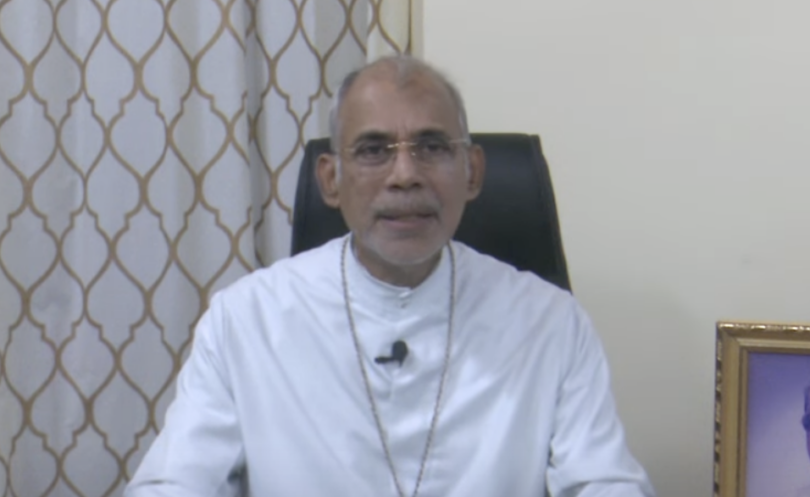(LifeSiteNews) — On April 15, Cardinal Filipe Neri Ferrão, archbishop of Goa-Daman, called on Catholics to refrain from visiting the Marian shrine of Our Lady of Velankanni in Tamil Nadu to avoid missing out on voting in the general elections in Goa on May 7.
“It is universally recognized, especially in a democracy, that the responsibility to make choices in political life rests with each individual, guided by a properly formed conscience,” the cardinal declared in the circular addressed to Catholics in Goa.
In his circular, Ferrão exhorted Catholics and “people of good will” to fulfill their civic responsibility by casting their votes.
“In this connection, I see it as my bounden duty, as the head of the Church in Goa, to call the attention of our Church members to the fact that, in the Catholic tradition, responsible citizenship is a virtue, and participation in political life is a moral obligation’,” the cardinal said, citing “The Joy of the Gospel,” apostolic exhortation by Pope Francis in November 2023.
This responsibility, the prelate added, is attributable to “our baptismal commitment to follow Jesus Christ and to bear Christian witness in all we do.”
“In this context, I appeal to every eligible voter to participate in the democratic process by casting the vote, not only as a right, but chiefly as a duty towards the nation. We have to collectively recognize that our vote is our irreplaceable personal contribution to the good of our country,” he elaborated.
“Every citizen ought to be mindful of his right and his duty to promote the common good by using his vote,” the cardinal said, citing from Gaudium et Spes, Pastoral Constitution on the Church in the Modern World, Second Vatican Council no 75.
“It is clear that Catholics moving out with family and friends on a holiday or even going on a pilgrimage on election day, thereby abstaining from the responsibility of participating in the voting process on the May 7, 2024, would be not only doing a disservice to the nation, but failing seriously in their important civic responsibility,” he went on.
Also, the cardinal urged “eligible Catholic voters” to vote for candidates with secular credentials for the good of all people according to India’s constitutional values, reminding Catholics “about their duty to pray for our country which we do on every Sunday at Mass.”
Similarly, Indian Catholics from the diocese of Warangal, in the southern Indian state of Telangana, received a pastoral letter on April 21 from Bishop Bala Udumala.
Udumala, currently the chairman of the Telugu Catholic Bishops’ Council’s Commission on Theology and Doctrine, called on Indian Catholics to serve Indian society as executives and legislators, as judges and public servants.
Regarding India’s general elections happening across the country at the moment, Udumala proclaimed that each vote counts.
“We need to ask ourselves as we choose whom to vote for,” he advised, exhorting Catholic voters to elect candidates who would uphold the country’s Constitution.
Moreover, Udumala alluded to the plight of Christians in Manipur, a state in northeast India, declaring that it was vital to seek justice for them.
Since May 2023, Manipur has been plagued with ethno-religious violence between Hindu majority Meiteis and Christian-dominated Kuki-Zo communities. Almost 200 people have been killed, while thousands have been made homeless as a result of the violence. Additionally, hundreds of churches and educational institutions have been burned. As of 2023, over 40,000 people from different communities have had to seek refuge in 272 relief camps, including community halls, in 13 districts of Manipur.
In other parts of India, including Meghalaya and Assam, tribal disputes have worsened, leading to worries of conflicts like those in Manipur, based on reports by Open Doors.
“With different news of clashes and violence among communities in Manipur and as well as religious communities in other states of India, it indicates a gory situation in the next few months,” Priya Sharma (name changed for security reasons), an Open Doors local partner stated in August 2023.
“The ripple effect of Manipur violence is felt in other north eastern states,” says Anjali Lhing (name changed for security reasons), another local Open Doors partner, said at that time. “A series of anti-Christian activities have taken place in north east states over the past week.”
Meanwhile, India’s ruling Hindu Bharatiya Janata Party (BJP) has been downplaying the violence against Christians in Manipur, giving rise to criticism of Indian Prime Minister Narendra Modi. Consequently, opposition members of parliament have tabled a no-confidence motion against Modi’s reticence on the Manipur violence, while India’s Supreme Court also slammed authorities for their ineffective response to the violence.
In light of the ongoing violence in Manipur, a church under the Ernakulam-Angamaly archdiocese in Kerala, India showed a documentary on the Manipur violence on April 10 to students attending its vacation catechism classes. Around 125 students watched the documentary, titled “Cry of the Oppressed,” portraying the ongoing violence in Manipur.
As per reports by The Indian Express, parish priest Father James Panavelil justified the church’s decision to screen the documentary, stating:
Manipur (violence) is a fact, not a fable. Screening the film was a reminder that we should not forget Manipur.
Last week, India started nationwide elections to the 543 contested seats in the lower house of Parliament, called the Lok Sabha, for a term of five years. Indian voters are expected to select new members of the Lok Sabha, as well as the next government. The elections will be conducted in seven phases across the huge country, commonly touted as the world’s largest democracy.

